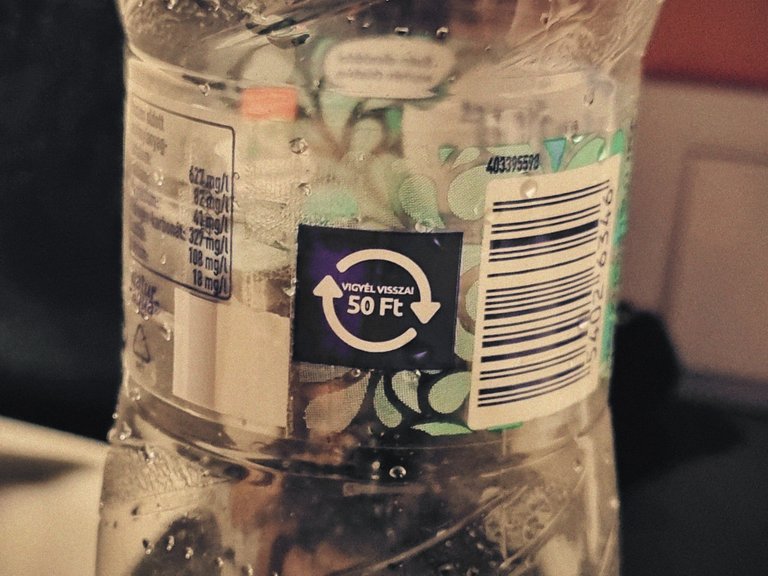Seit Anfang dieses Jahres gibt es in Österreich das erste Mal in der Geschichte einen 25 Cent Pfand auf Plastikflaschen und Dosen.
Damit soll die Sammelquote für Plastikmüll erhöht werden, obwohl diese in Österreich vor der Einführung des aufwendigen Pfandsystems regional bei fast 90% (!) lag.
In Ungarn gibt es dieses Sammelsystem bereits seit einem Jahr (Anfang 2024).
Der Pfand beträgt für jede Plastikflasche 50 Forint, was umgerechnet derzeit etwa 12 Cent entspricht.
Das Problem ist allerdings, es war für mich unmöglich die leere (nicht zerdrückte) Plastikflasche in Budapest zu retournieren.
War in mindestens 5 Lebensmittelgeschäften im Zentrum von Budapest. Bei zwei gab es keinen Rückgabeautomaten, und bei den anderen war der Rückgabeautomat außer Betrieb. Vermute mittlerweile, dass dies absichtlich war, um sich nicht mit der Rücknahme der leeren Flaschen kümmern zu müssen.
Habe mich dann entschlossen, die Plastikflasche in den Plastikmüll zu werfen und die 50 Forint zu verbrennen.
Mein Fazit ist, dass dieses System nicht wirklich gut funktioniert, einen enormen zusätzlichen logistischen Aufwand und Bürokratie produziert mit einem zweifelhaften Impact für die Umwelt.
Zumindest in Österreich wurden Plastikflaschen bereits ohne Pfand in den meisten Fällen getrennt. Vor allem außerhalb Wiens.
Alternativen zum bürokratischen Pfandsystem wären Flaschen aus umweltfreundlicheren Materialien (vielleicht Aluminium) herzustellen bzw. das automatische Filtern von Plastik und Dosen aus dem Restmüll durch automatisierte Anlagen. Ganz ohne Pfand.
Was sagt ihr zum Pfandsystem für Plastikflaschen? Was sind eure Erfahrungen damit? Denkt ihr, dass das überhaupt einen Sinn macht?

The deposit fee for plastic bottles in Hungary is 50 Forint around 12 Euro Cent, but it is hard for tourists to return the bottles and get the money back.
English
Since the beginning of this year, Austria has introduced a 25 cent deposit on plastic bottles and cans for the first time in history.
This is intended to increase the collection rate for plastic waste, although this was almost 90% (!) regionally in Austria before the introduction of the costly deposit system.
In Hungary, this collection system has already been in place for a year (beginning of 2024).
The deposit for each plastic bottle is 50 forints, which currently equates to around 12 cents.
The problem is, however, that it was impossible for me to return the empty (not crushed) plastic bottle in Budapest.
I went to at least 5 grocery stores in the center of Budapest. In two of them there was no return machine at all, and in the others the return machine was out of order. I now suspect that this was done intentionally so as not to have to bother about collecting the empty bottles.
I then decided to throw the plastic bottle in the plastic waste and burn the 50 forints.
My conclusion is that this system doesn't really work very well and produces an enormous amount of additional logistical effort and bureaucracy with a dubious impact on the environment.
At least in Austria, plastic bottles were already separated without a deposit in most cases. Especially outside Vienna.
Alternatives to the bureaucratic deposit system would be bottles made from more environmentally friendly materials (maybe aluminum) or the automatic filtering of plastic and cans from residual waste using automated systems. Without a deposit fee.
What do you think of the deposit system for plastic bottles? What are your experiences with it? Do you think it makes any sense at all?
Posted Using INLEO

